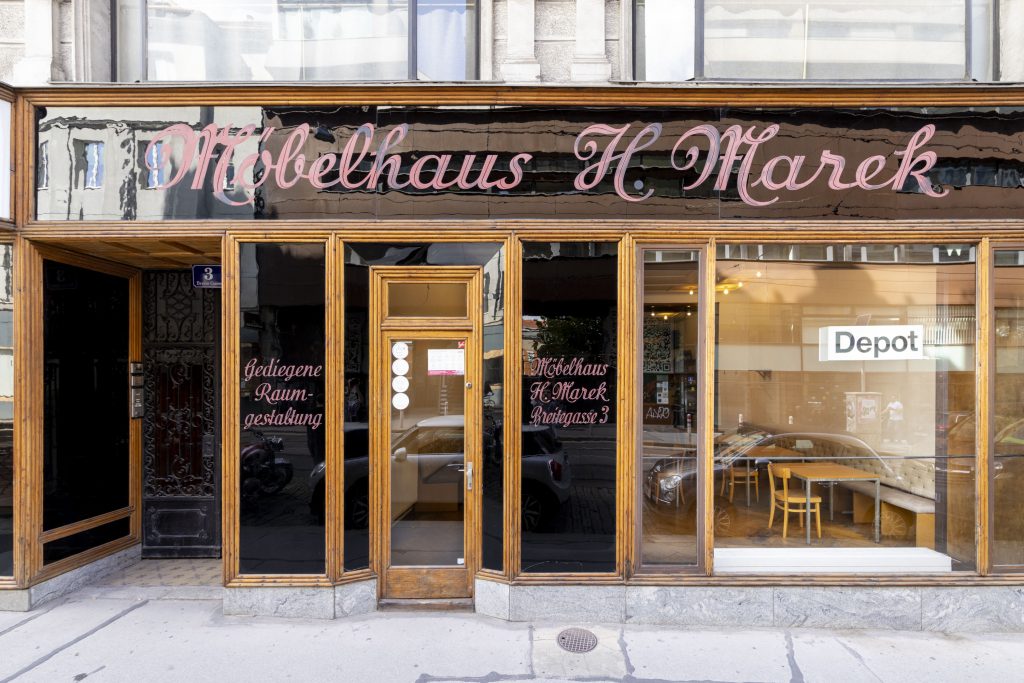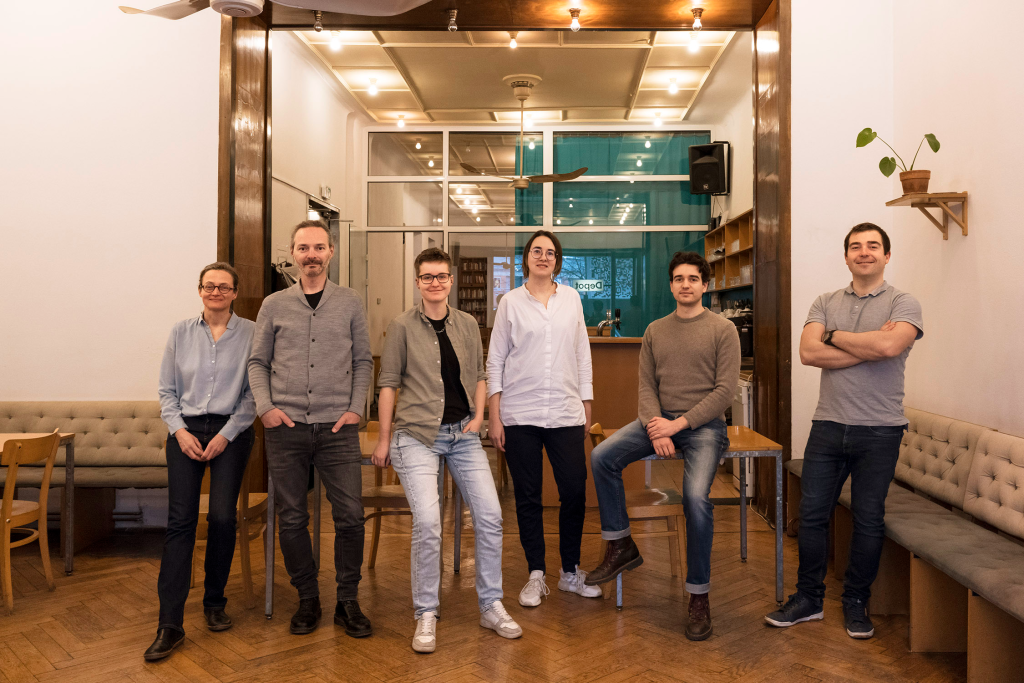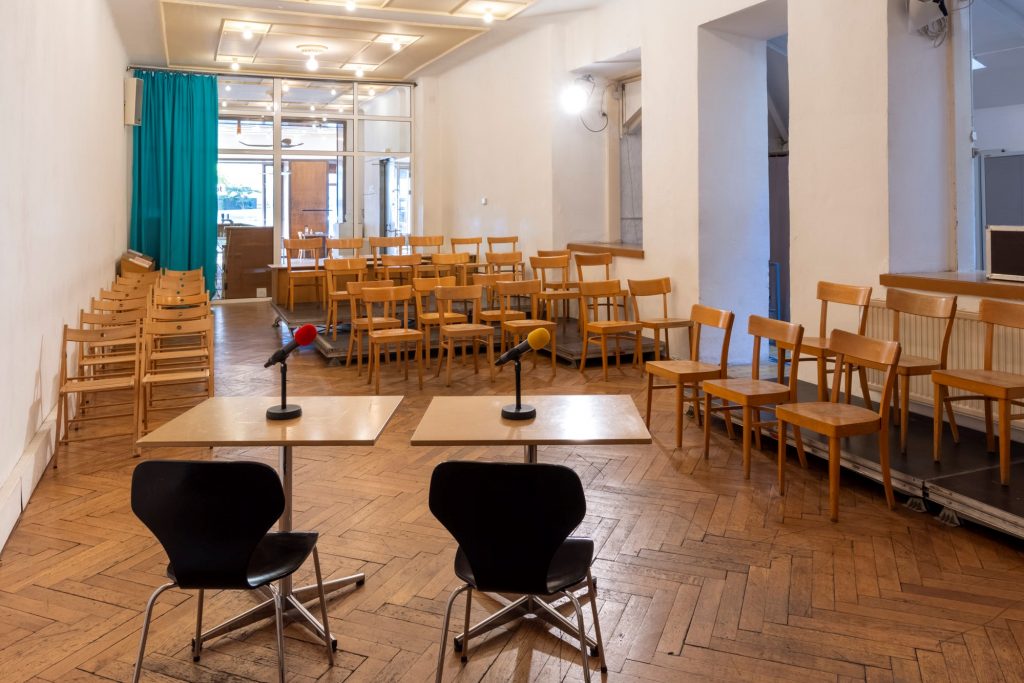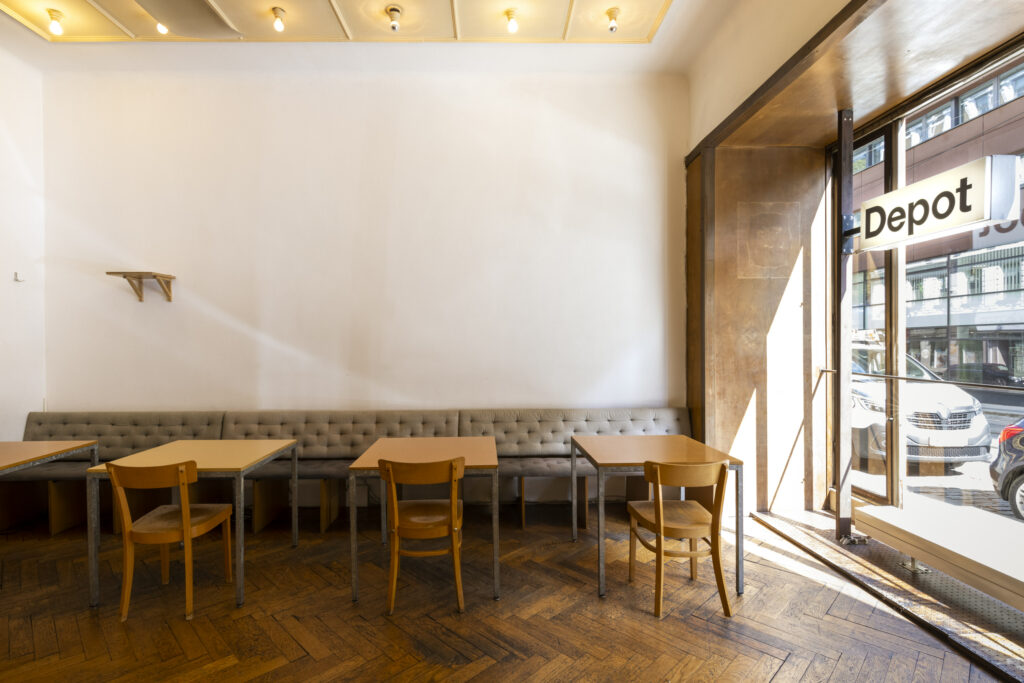Der Eintritt zu allen Veranstaltungen
im Depot ist frei.
Depot Café
Di–Fr ab 14 Uhr
& bei Veranstaltungen
Zahlreiche Veranstaltungen und Vorträge im Depot–Kanal auf YouTube!
Als Raum für aktuelle Debatten aus Kunst, Gesellschaft und Wissenschaft, veranstaltet das Depot pro Jahr über 100 Diskussionen, Vorträge, Tagungen und Workshops.
Neben Buchpräsentationen und Podiumsdiskussionen hostet das Depot regelmäßig Veranstaltungsreihen, darunter feminismen diskutieren, Geh Denken!, Crit Cross und das Künstler*innengespräch Bewährungsprobe.
Das Depot kooperiert 2024 mit PhD in Practice, D/Arts und vielen weiteren Vereinen und Initiativen.
Das Depot öffnet eine halbe Stunde vor Veranstaltungsbeginn.
Das Café und der Veranstaltungsraum des Depot sind barrierefrei zugänglich, die Toiletten leider nicht.
Mehr Infos zu Barrierefreiheit hier.
Aktuell



